One of West Africa’s largest and most fascinating countries, Senegal has a rapidly developing tourist scene. As it becomes more popular, you might be wondering “is Senegal worth visiting”?
I found myself wondering this when I booked a West African trip in Autumn 2023.
I spent two weeks in Senegal, and can confirm that YES, this country is worth visiting – if you’re into nature, culture cities or beaches!
Here’s exactly what I think about whether Senegal’s worth visiting!
Is Senegal worth visiting?
Senegal, might not be on every traveller’s radar, but it’s certainly becoming more and more popular!
This under-the-radar destination is where the sprawling baobab trees meet the rhythmic waves of the Atlantic.
Senegal’s wildlife reserves may not rival the scale of those in East Africa, but you can still encounter wildlife like giraffes, zebras, and rhinos up close.
Dakar, the capital city, is a whirlwind of activity, set dramatically on a peninsula surrounded by picturesque beaches.
With tourism just beginning to flourish, marked by the opening of several high-end hotels, Senegal is steadily becoming more accessible to the curious traveller.
So, is it worth visiting?
Absolutely – for those ready to dive into a world where tradition meets modernity, and natural landscapes are as varied as they are stunning.
Reasons to visit Senegal
From history to culture to nature, there are so many reasons to visit Senegal! Take a look at my top reasons here:
Emerging Tourist Destination
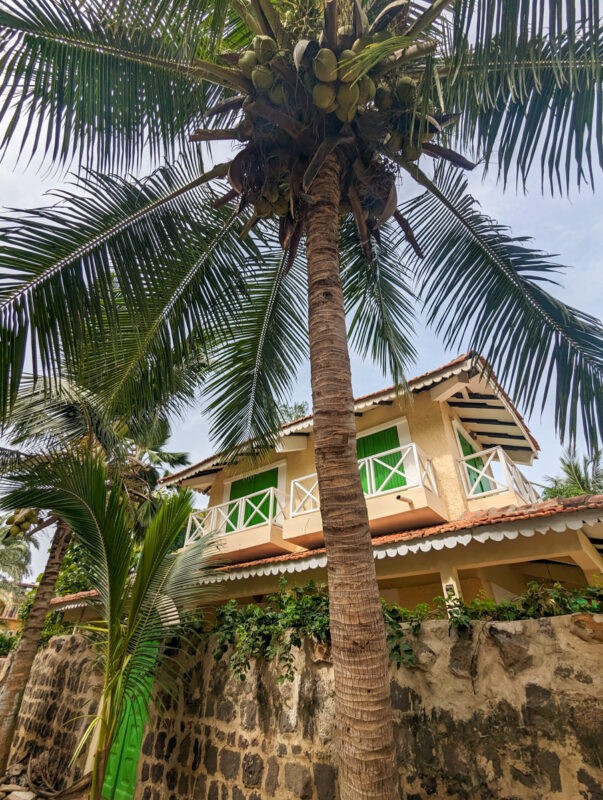
Senegal, while not topping the charts of African tourism just yet, is gradually making its mark on the global travel map.
This West African nation is emerging as a fresh alternative to the more frequented tourist hotspots.
What sets Senegal apart is its blend of unspoiled landscapes and a less crowded tourist experience.
As I navigated through the country, I was struck by the contrast between its quiet, golden beaches and the bustling, vibrant streets of Dakar.
Senegal is a more authentic and intimate encounter with African culture and nature. It’s this untapped potential and the chance to explore without the crowds that make Senegal an increasingly appealing destination!
Check out my full Senegal travel guide!
Rich Culture
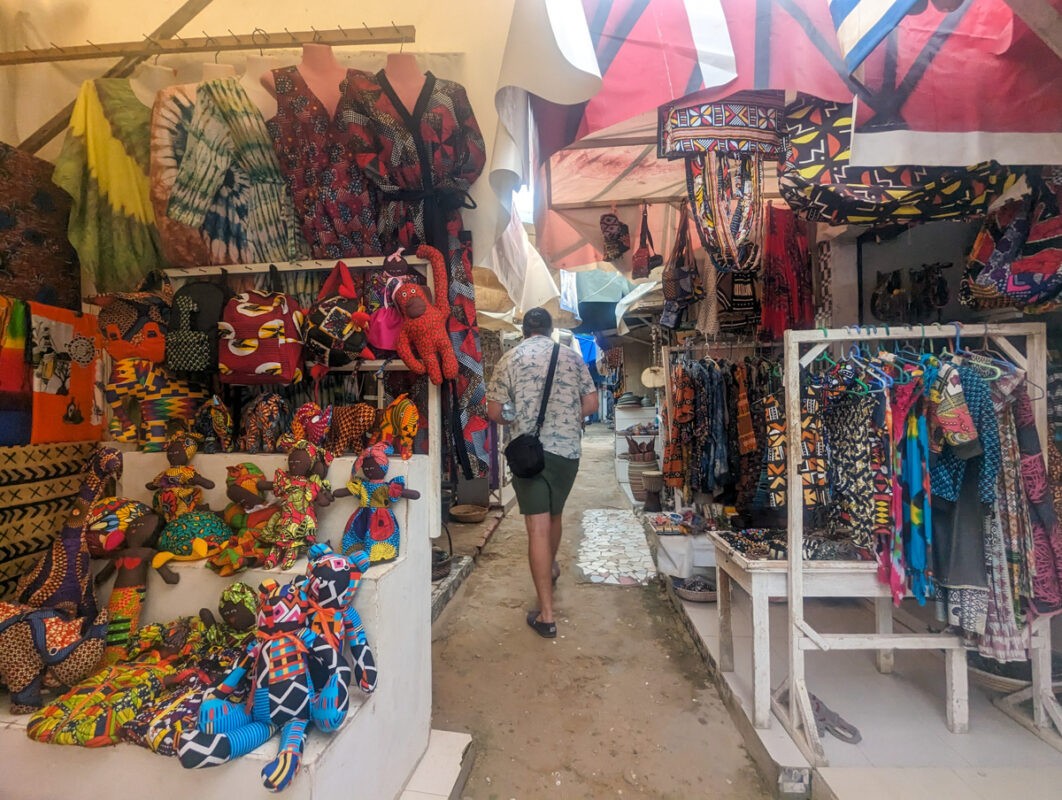
In Senegal, Wolof, Serer and other African ethnic groups blend with French colonial heritage.
My travels across Senegal exposed me to the pulsing rhythms of Mbalax, the country’s most popular music genre.
In Dakar’s bustling markets, I saw vibrant displays of traditional Senegalese attire, with brightly colored boubous and elaborate embroidery showcasing the craftsmanship of local artisans.
The French influence is subtly woven into the culinary scene, where dishes like Thieboudienne, a spicy fish and rice meal, reflect a fusion of Senegalese flavours with a French culinary approach.
Diverse nature
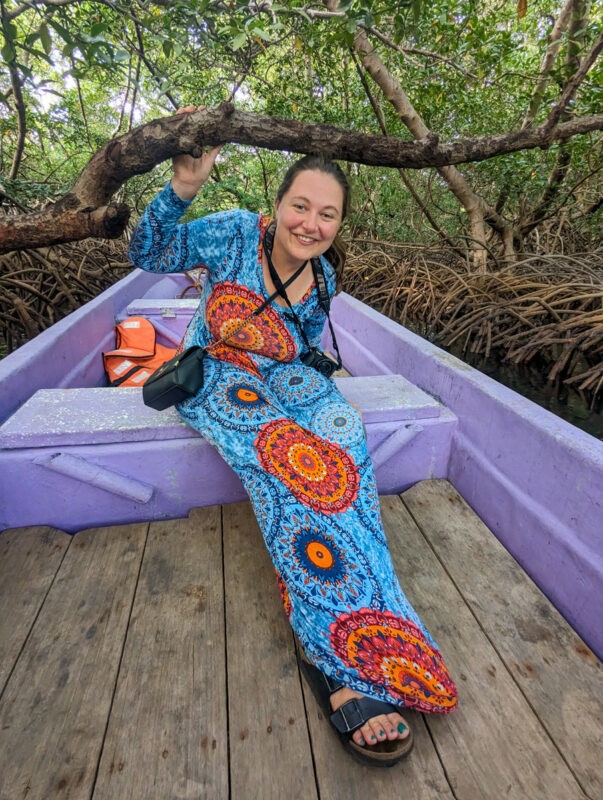
Senegal’s natural scenery is as varied as it is breathtaking.
Travelling through the country, I was constantly amazed by the changing landscapes.
From the iconic baobab-dotted plains in the north, standing tall and majestic against the sky, to the vibrant greenery of the Sine-Saloum Delta in the south, each area showcases Senegal’s epic nature.
The wildlife reserves, like Niokolo-Koba National Park, are teeming with a range of species, from elusive leopards to vibrant birdlife, showcasing a different side of African wildlife away from the more familiar savannahs of the east.
In the south, the mangroves along the Casamance River, with their intricate network of waterways, are a stark contrast to the dry Sahelian region.
Historical significance
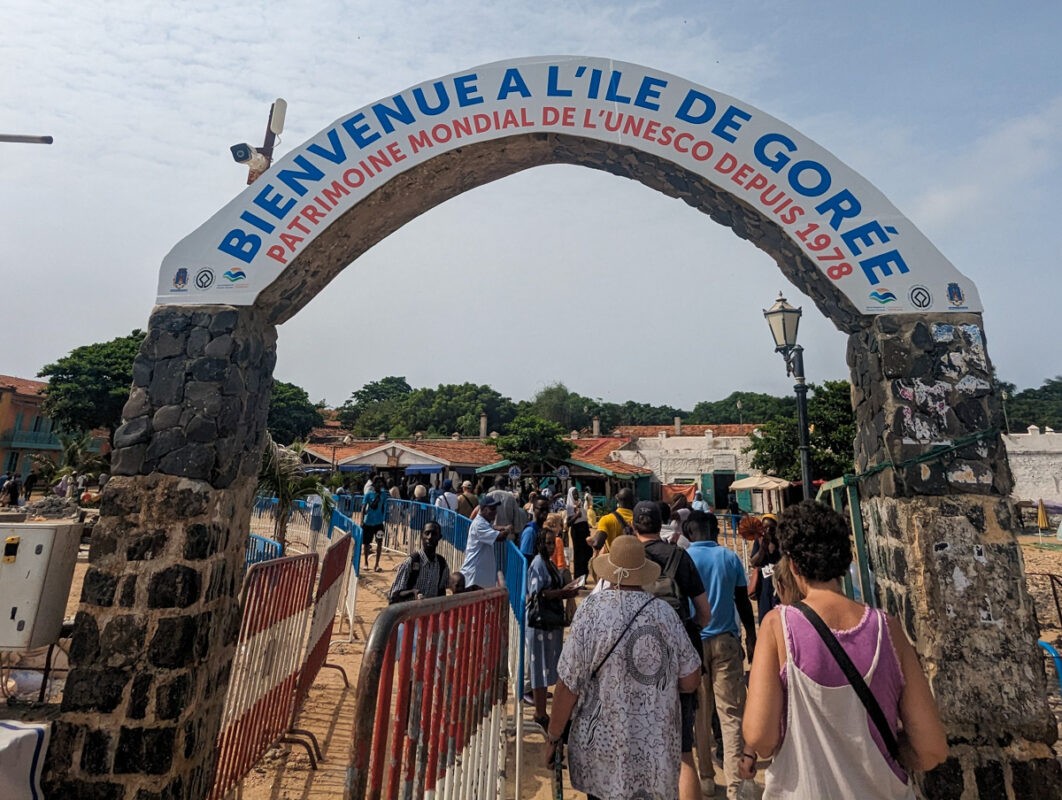
The historical depth of Senegal struck me profoundly, especially at Gorée Island, a site steeped in the sombre history of the Atlantic slave trade.
The House of Slaves, with its haunting ‘Door of No Return,’ offered a visceral connection to the countless lives affected by slavery.
This history extended beyond Gorée to places like the vibrant city of Saint-Louis, a former capital of French West Africa, where colonial architecture lines the streets.
Beach Paradise
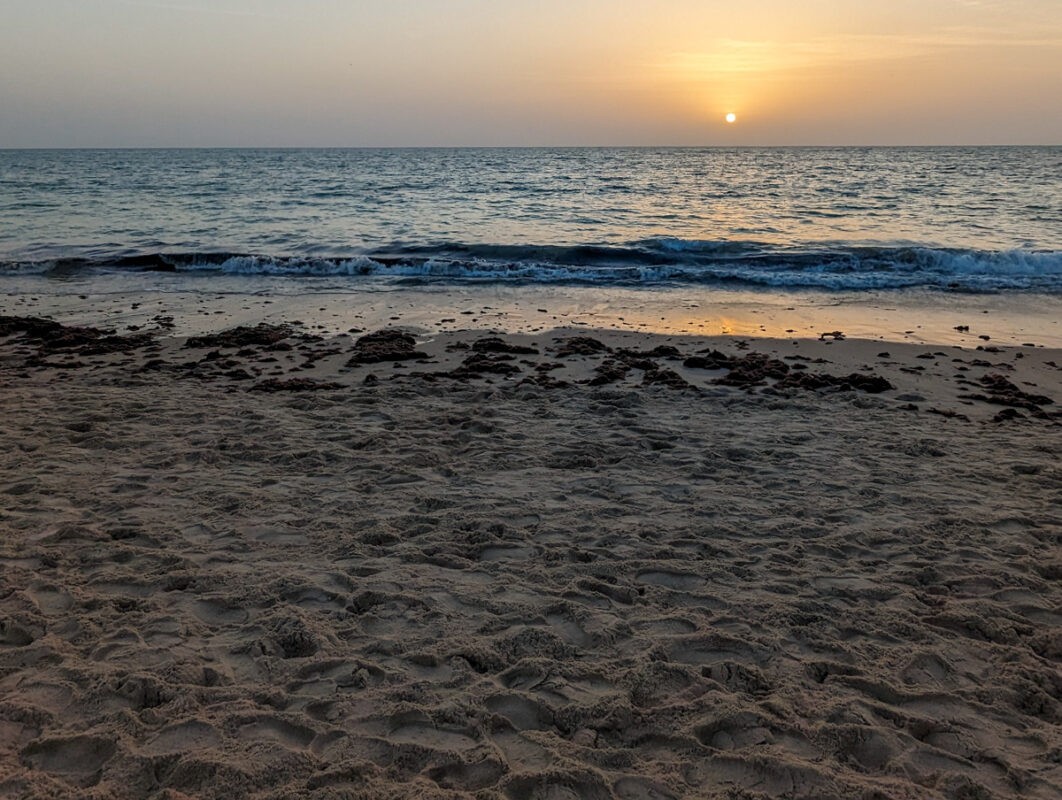
Senegal’s coastline, a stretch of pristine white-sand beaches, is an idyllic escape.
Saly and Pointe Sarene, two of the country’s most renowned beach destinations, are home to soft sands, fringed by swaying palms and caressed by the gentle Atlantic waves.
In Saly, the beach life pulsates with a lively yet laid-back vibe, where locals and tourists alike mingle, basking in the coastal beauty.
Pointe Sarene is a haven. It’s home to the RIU Baobab Hotel, a luxurious place to stay with multiple pools, spacious rooms and delicious food!
Unique city of Dakar
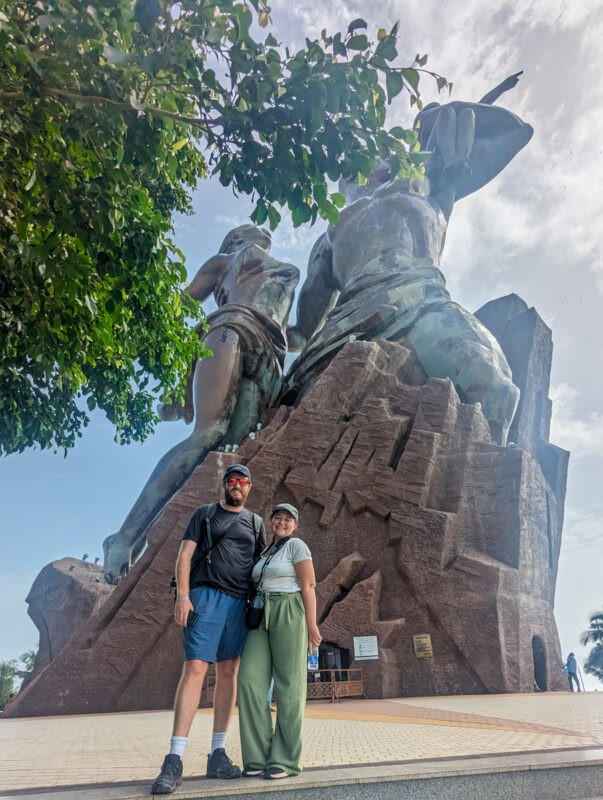
Dakar, the vibrant heart of Senegal, is a complete contrast to other parts of Senegal!
As the most prominent city in Senegal, it encapsulates the lively spirit of West Africa.
The streets of Dakar are a bustling blend of marketplaces, such as the famous Marché Kermel, where vibrant stalls burst with local produce and crafts.
The city’s museums, like the IFAN Museum of African Arts, offer a deep dive into West African culture and history.
Visit the African Renaissance Monument, an iconic symbol towering over the city.
Wildlife and safari
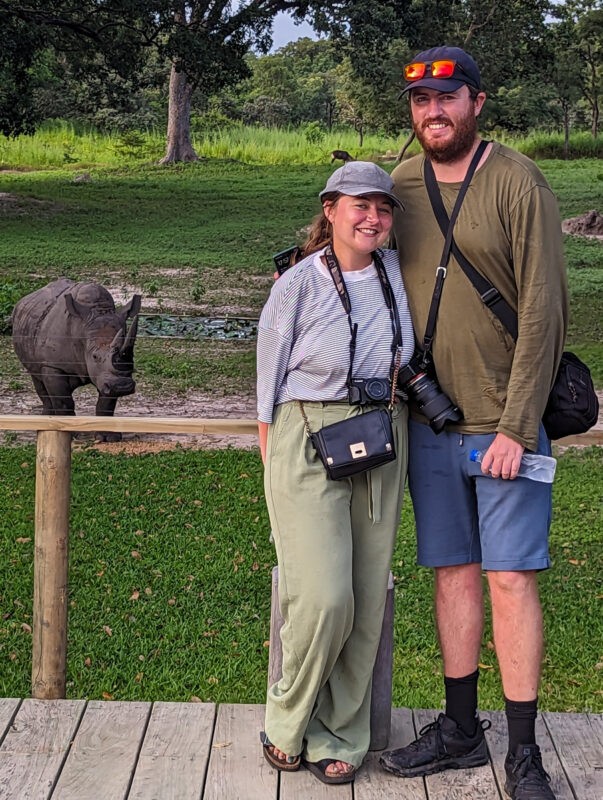
Exploring the wildlife reserves of Senegal; Fathala and Bandia is a fresh perspective on African safaris, distinct from the more famed East African experiences.
Fathala Wildlife Reserve, stretching across the northern border with The Gambia, provided an intimate safari experience, where I encountered an array of wildlife including roaming giraffes, and warthogs!
Bandia Reserve, closer to Dakar, is more compact but teeming with life. Antelopes, zebras, and rhinos are regular sights.
The reserves in Senegal may not have the vast open savannas of East Africa, but their dense vegetation and the variety of animals make it still an epic safari experience!
Food
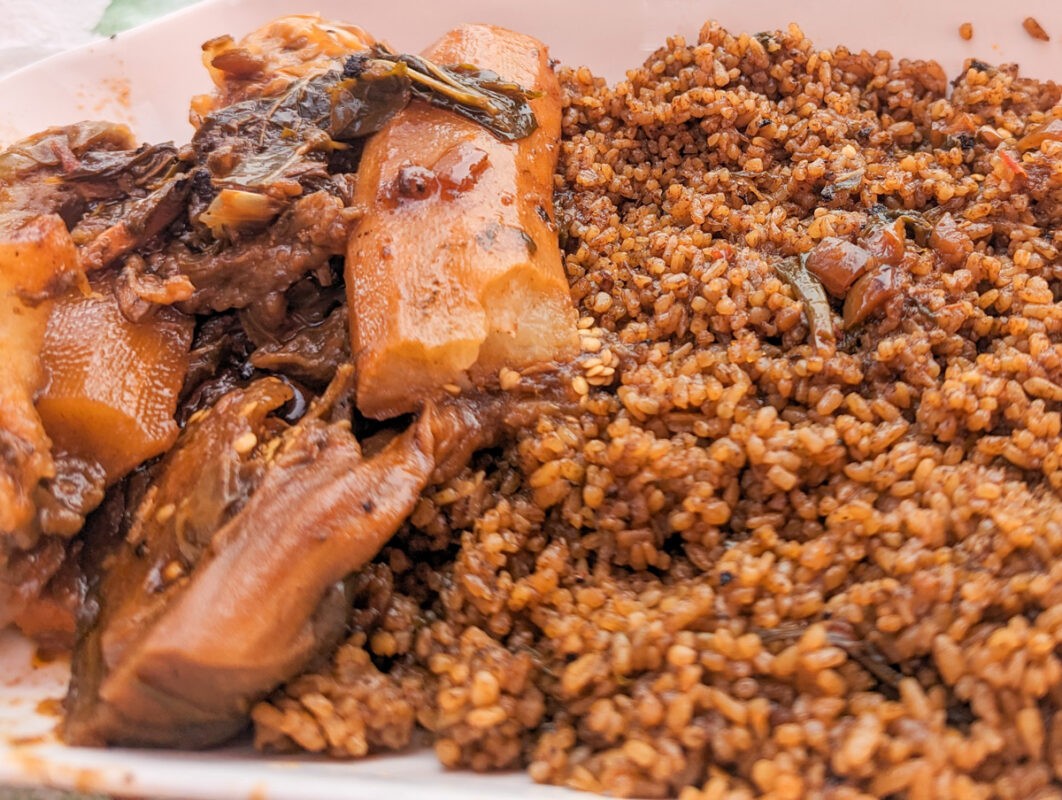
Senegalese cuisine, with its rich and robust flavours, is loved by many travellers.
Dishes like Thieboudienne, a spiced fish and rice dish, and Yassa, a tangy chicken or fish creation, exemplify the harmonious blend of local ingredients with French influence.
The bustling markets of Dakar and other towns are a testament to this fusion, where vendors sell an array of spices and French-style bakeries sit alongside traditional Senegalese eateries.
As a vegetarian, navigating the predominantly meat and fish-based cuisine was certainly a little challenging – and I’ll be honest, Senegalese cuisine wasn’t my favourite but I know that other travellers enjoy it a lot more!
Considerations for visiting Senegal

When planning a trip to Senegal, there are a few things to bear in mind. It’s a safe destination, but considering these thigns will help you to have a hassle-free trip.
Cost
One important thing to bear in mind is the cost.
While Senegal boasts a range of experiences, from luxurious beach resorts to cultural tours, the prices can be a bit steep compared to some other destinations.
This is partly due to the country’s emerging status on the tourist scene, which means fewer budget options and less competition to drive prices down.
Health precautions
Health precautions are crucial.
Before travelling, consult with a travel doctor to stay up-to-date on necessary vaccines.
Malaria is prevalent, especially during the wet season, so malaria prophylaxis is essential.
Carry a good quality insect repellent and wearing long-sleeved clothing during dusk and dawn to further mitigate the risk.
Travel around Senegal
Getting around Senegal can be a challenge, particularly if relying on public transport!
While buses and sept-places (shared taxis) connect major towns, they can be rather infrequent and crowded.
Private transfers are a more comfortable and reliable alternative, though they cost more!
Climate
The climate in Senegal, particularly during the summer and shoulder seasons, is known for its intense heat and humidity.
Be prepared for this by staying hydrated, wearing light and breathable clothing, and planning outdoor activities during cooler parts of the day!
Tips for an enjoyable holiday in Senegal
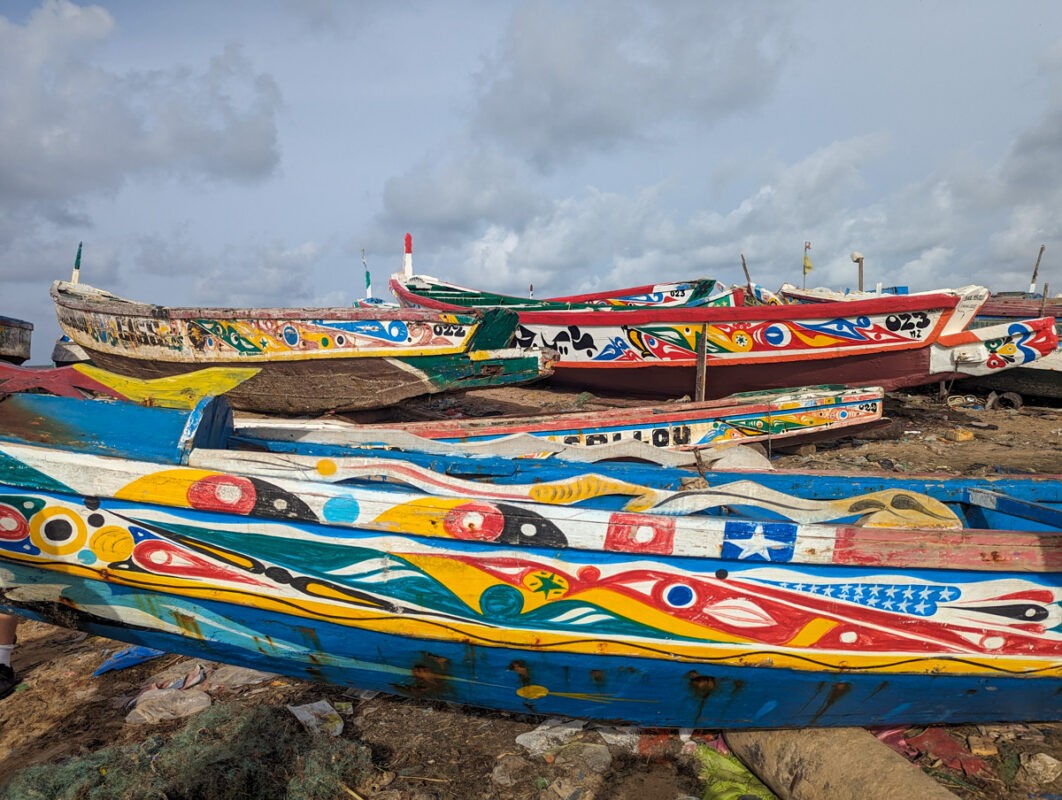
- Stay Healthy: Prioritize vaccinations for diseases common in West Africa, such as Yellow Fever, Hepatitis A and B, and Typhoid. Always carry malaria prophylaxis, especially during the wet season, and use mosquito repellent liberally.
- Pack Smart: Include lightweight, breathable clothing for the humid climate. Don’t forget a hat, sunglasses, and strong SPF sunscreen. For evenings or visits to nature reserves, long-sleeved shirts and trousers can protect against mosquitoes.
- Language Preparedness: While French is the official language, learning a few basic phrases in Wolof can enhance interactions with locals. English is not widely spoken, so a translation app or a small French phrasebook can be invaluable.
- Stay Connected: Consider buying a local SIM card for better coverage and affordable data. Senegal’s mobile network is reliable in urban areas and key tourist spots.
- Cash is King: Carry sufficient local currency (West African CFA Franc) as many places don’t accept credit cards. ATMs are available in larger cities, but having cash is essential, especially in rural areas.
- Travel Safely: Use reputable transport services for long distances. In cities like Dakar, use metered taxis or ride-hailing apps to avoid overcharging.
- Stay Hydrated: The climate can be deceptively hot and humid. Regularly drink water to stay hydrated.
- Cultural Sensitivity: Dress modestly, especially when visiting religious sites or traditional communities. Understanding and respecting local customs and practices will enrich your experience.
- Safety First: Keep abreast of local news for any potential unrest or demonstrations, especially in urban areas, and always inform someone of your travel plans, especially when venturing off the beaten path.
Are you ready to visit Senegal?
From the city to the beach, there are so many epic reasons to visit Senegal!
Hopefully this blog post has convinced you to visit – check out the rest of my Senegal posts for more information!
